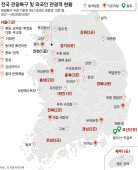Debate between Piketty and Mankiw looms larger
Debate between Piketty and Mankiw looms larger
Posted January. 06, 2015 08:09,
The most famous debate in economics history is on the abolition of the Corn Laws
between David Ricardo and Thomas Malthus. Ricardo favored free trade, colliding with Malthus who argued for protectionism, with the former winning. Entering the 20th century, another big debate arose between John Keynes and Friedrich Hayek. Keynes advocated nations` active market intervention and Hayek argued in favor of market taking control. Keynes seemed to be the winner but the consequent winner was Hayek`s new liberalism idea.
Now a new debate is ongoing since the 2008 global financial crisis. Paul Krugman and Joseph Stiglitz share one view and Gregory Mankiw the other. Last year, Thomas Piketty`s book "Capital in the Twenty-First Century" was translated into English, which led to spread of a debate to between Piketty supported by Krugman and Mankiw. Krugman and Mankiw recently clashed at the American Economic Association annual meeting in Boston. Piketty analyzed 300 years of tax data of advanced countries to prove concentration of wealth. To this, Mankiw responded by saying "So what?" He meant to say wealth inequality is a natural consequence of economic contribution.
There was a more famous economist in France before Piketty. He was Jean Baptiste Say. Say argued that there is no excess supply because demand naturally follows supply. The debate between Ricardo and Malthus and that between Keynes and Hayek have Say`s claims as background idea. Malthus and Keynes deny Say`s rules. They admitted that capitalism, if left alone, will fall into crisis due to excess supply, and Karl Marx pushed through with this to the end.
Piketty`s book is a parody of Marx`s capitalism but does not argue for revolution. It says political intervention such as wealth tax imposition can prevent concentration of wealth. Piketty argued for global wealth tax, saying that if wealth tax is imposed on one country, wealth can move to another country. Meanwhile, Mankiw believes that wealth of one person is dispersed and reduced through generations to naturally approach average. It is difficult to take one`s side. And that`s why this is an ongoing debate.
Headline News
- N. Korea redefines S. Korea as ‘hostile state’ in revised constitution
- Samsung develops graphic DRAM with industry-leading capacity and speed
- Three questions allegedly leaked via text message during Yonsei Univ. essay test
- China to inject 340 trillion won in loans to support real estate sector
- Dodgers beat Mets to take 2-1 lead in NLCS







